Content from the Brookings Doha Center is now archived. In September 2021, after 14 years of impactful partnership, Brookings and the Brookings Doha Center announced that they were ending their affiliation. The Brookings Doha Center is now the Middle East Council on Global Affairs, a separate public policy institution based in Qatar.
The Kurdistan Regional Government’s (KRG) loss of Kirkuk province to Baghdad this month, along with a string of other territories in northern Iraq, has shifted the pendulum in Kurdistan from one of jubilation and defiance to despair and uncertainty. Kurdish autonomy is not in doubt, but the balance of power has moved in Baghdad’s favor. U.S. relations with the KRG have also taken a serious blow as a result of Washington’s acquiescence to the Kirkuk offensive, which was aimed at bolstering Prime Minister Haider al-Abadi’s position and sidelining Iran-aligned factions ahead of next year’s elections.
As the dust settles from the Kirkuk crisis, the United States and Kurdistan must revise and rebuild their relationship quickly, for the sake of American, Kurdish, and Iraqi interests. While Washington’s green light for the Kirkuk offensive has hurt relations with the KRG, the damage is not irreparable. The decision by Masoud Barzani, the longtime KRG president, to step down from his role was welcomed by the State Department. This creates an opportunity for Washington to work more closely with KRG Prime Minister Nechirvan Barzani (Masoud Barzani’s nephew) and Qubad Talabani, Kurdistan’s deputy prime minister. Still, the United States has a long way to go before American credibility is fully restored after an episode that will dominate the Kurdish political outlook for years to come.
Kurdistan and the United States must revise their traditional relationship to conform with the increasingly transactional and less values-based nature of U.S. foreign policy today. The Kurds can no longer pin their ambitions on the United States at a time when the country itself is in upheaval over the shape and definition of America’s engagements abroad. Kurdistan must learn what others in the region learned the hard way after the turmoil that followed the Arab uprisings and the Syrian civil war, without the same suffering and colossal humanitarian consequences. The United States will no longer invest in policing the region, much less shaping and enforcing a regional order that could be conducive to Kurdish statehood.
U.S. policymakers should take stock of the fall-out from their ineffectual signaling around the Kurds’ aspirations for independence. While Washington stressed its opposition to the referendum, its heavy emphasis on the war against ISIS and the centrality of the Kurdish Peshmerga, as well as military facilities and political investments in Kurdistan, led to calculations that the United States would not permit a military offensive against the Peshmerga. At least, there were genuine and not entirely unreasonable assumptions that the United States would mediate tensions.
Washington could have helped Baghdad and Erbil navigate the volatile post-referendum climate, but it instead provided carte blanche that the Iraqi government then exploited effectively, with support from regional powers. In the years to come, the United States may rue these choices and the way it handled its relationship with the Kurds and Baghdad.
Moving forward, there is still a relationship of interdependency based around mutual security and geopolitical interests, and the United States and the Kurds remain linked by a convergence of interests ahead of parliamentary elections next year. In particular, al-Abadi cannot emerge victorious from next year’s parliamentary elections and continue at the helm without KRG support, which has been central to the government formation process in Baghdad since 2003 and has often played the role of kingmaker. The multiple other factions in Baghdad are either too weak or too malevolent for U.S. purposes.
Losing the Kurds will result in a weakened American hand in Baghdad and the rest of Iraq, where it will continue to contest regional powers like Iran for influence and where the United States will continue to be engaged as it attempts to prevent ISIS and its ilk from mounting a resurrection in the coming years. In the interim, to salvage the historical alliance between Kurdistan and the United States, Washington should establish—and enforce—red lines that prevent Baghdad from making further advances toward the undisputed Kurdish border area of Faysh Khabur, which Baghdad wants to control in order to economically suffocate the KRG. That could trigger another civil war that reverses U.S. security gains in recent years and opens up space for Iran to exert its influence and fill the gap left by the absence of American leadership.
For their part, Iraq’s Kurds must look closer to home and collectively engage in a long, arduous, but worthwhile journey of institution-building and political reform to enhance self-sufficiency as well as the KRG’s political and security structures. The Kurdish leadership has few choices other than to go back to the drawing board. With technical, political, and financial support from the international community, including the United States, it should focus its energy and resources toward institution-building and good governance practices, including reconciliation between rival Kurdish parties. The biggest challenge facing the Kurds is a crisis of internal sovereignty and heightened tensions between its political parties—Barzani’s Kurdistan Democratic Party (KDP) and the Patriotic Union of Kurdistan (PUK), its historic rival with whom it clashed throughout the 1990s.
The KDP and PUK will reconcile, as they have done before, and there are arbiters within the two rival parties that have long-standing, ongoing interactions that can ensure tensions do not escalate into another intra-Kurdish civil war. While the KDP managed to organize its rivals around a unified front for the referendum, party leaders must now realize that simply managing the fragmented political climate and the competing power centers between and within Kurdistan’s main parties is no longer sustainable. It is only through championing and implementing serious political reform that Kurdistan can overcome internal divisions and, potentially, once again make a push for independence in the coming years.
A stronger Kurdistan can also help build a stronger Iraq that advances the interests of the region and the international community. Evaluating and re-defining the nexus between Erbil and Baghdad could allow for a common national framework that revives the relationship between citizen and state. This will require that equitable, just, and sustained power-sharing arrangements become firmly entrenched within Iraq’s fragile political system. Otherwise, aspirations for Kurdish statehood will continue to disrupt and divide an Iraqi state that has a plethora of other challenges ahead, some existential and generational.
The Brookings Institution is committed to quality, independence, and impact.
We are supported by a diverse array of funders. In line with our values and policies, each Brookings publication represents the sole views of its author(s).

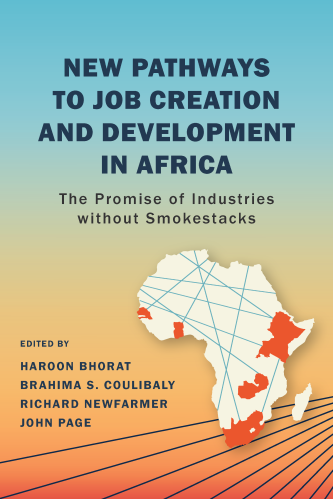
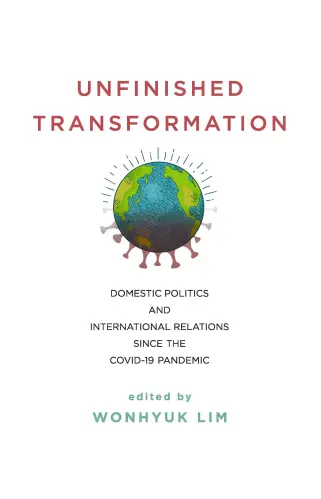
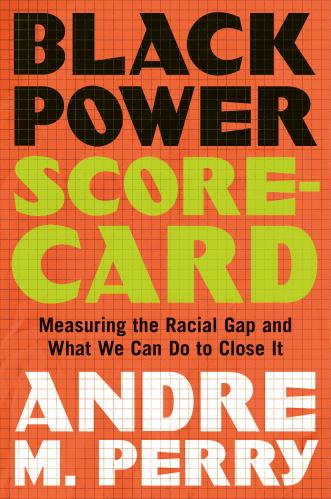
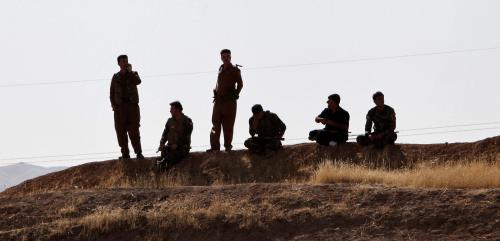
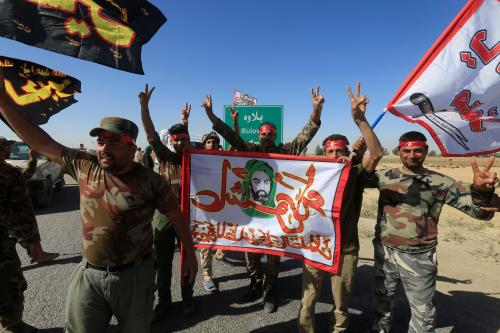
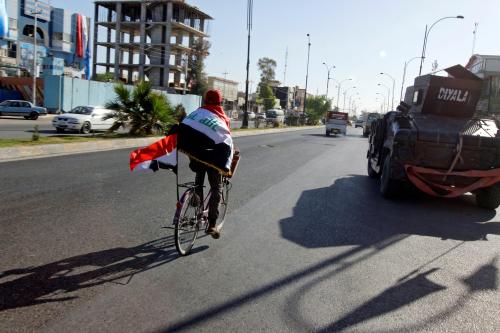

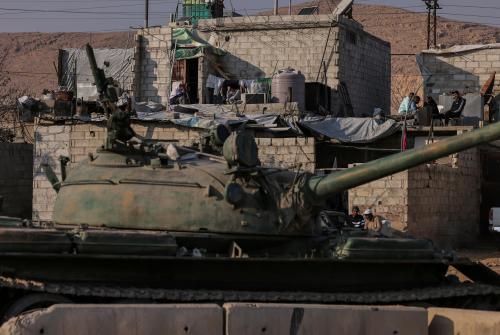
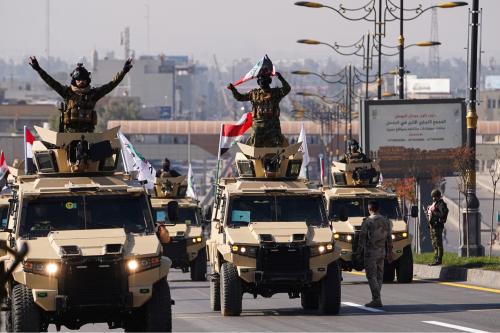
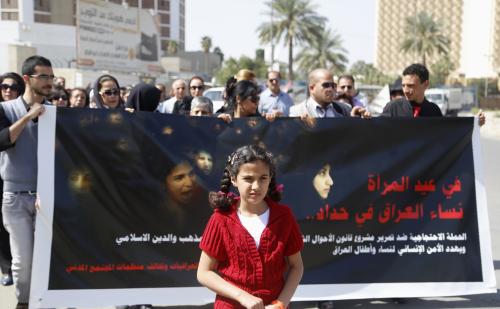
Commentary
The U.S. and Kurdistan: Revise and rebuild after Kirkuk
November 3, 2017